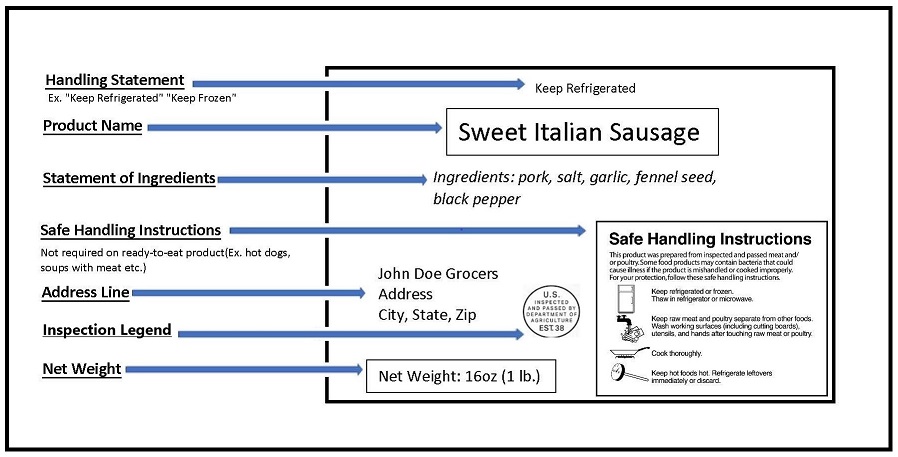
VAAFM recommends caution if purchasing meat from sellers at your home or from travelling vehicles
May 12, 2023 | Montpelier, VT – As the grilling season heats up, and especially in times of economic difficulties, door-to-door meat sellers begin making the rounds through neighborhoods in Vermont, and setting up shop in local parking lots. The Vermont Agency of Agriculture, Food and Markets (VAAFM) has already begun receiving reports, and some complaints, on door-to-door meat sellers. VAAFM strongly encourages Vermonters to use the utmost caution when considering purchasing meat from a door-to-door meat truck.
In the past, VAAFM has received complaints about the poor quality of the products sold by door-to-door meat sellers, as well as their misleading, and sometimes aggressive sales tactics. Concerns over the safety of the product purchased has also been at issue. Although there are several legitimate door-to-door meat sales companies licensed in Vermont, some other companies are selling meat without adhering to the appropriate requirements and without proper licensure.
VAAFM offers these tips to consumers so they can protect themselves and avoid being cheated with potentially unsafe and poor quality product:
- Ask for identification and ask to see the company’s Retail Meat License: VAAFM requires all meat and poultry vendors who sell in Vermont to be properly licensed and to carry the license with them. The license must be issued by VAAFM for the seller to be eligible to sell in Vermont. If you have a question, contact VAAFM to determine the license status of a vendor.
- Ask to see literature from the company (brochure, business card, etc. to review): Reputable companies will have a local sales office, often with a published pricing list. Often the person selling the meat is an independent contractor. It is important to get the company’s name, place of origin, address, phone number, salesperson’s full name (again, ask for identification), and the product return policy in writing – and understand it – prior to making a purchasing decision. If you do make a purchase, make sure you receive a receipt.
- Transport Vehicle: Always check to see that the products have been transported in a refrigerated vehicle. Never buy products that have been stored in the vehicle’s trunk, in an unrefrigerated vehicle, or in any kind of ordinary cooler or freezer that is unplugged. Frozen food should be stored at 0°F and fresh foods should be stored at 40°F or below at all times to prevent bacterial growth and spoilage. Unrefrigerated product may be unsafe because bacteria and pathogens can multiply rapidly during times of elevated temperatures.
- Know the price per pound: In Vermont, meat retailers are required to sell meat by the pound; therefore, be informed of the price per pound of the product in question. Don’t be fooled by a “cost per case”. Do the math ($ total price ÷ total pounds) and calculate how much meat you're actually getting for the cost. If price per pound is not disclosed, do not purchase the product.
- Know the product you are buying: Read the label on each package. Is there a long list of added ingredients and fillers? Is the cut of meat clearly identified? Is there product inspection information? Inspection of the meat by the United States Department of Agriculture (USDA) or by the State of Vermont is mandatory, and an establishment’s inspection number must be provided on the label, along with the species, cut of meat, Net weight, ingredients statement, and safe handling instructions. If you are being asked to buy meat in bulk, lacking sufficient labeling on each individual package of meat, you cannot be sure the meat has been properly inspected as required.
- High pressure sales tactics: Consumers should trust their instincts. If you are unsure, take a pause, and ask that they return at another time or provide you with contact information you can use at a later date. A legitimate vendor would not put pressure on a consumer to “buy now or lose the deal”.
Consumers with doubts about the safety of meat they’ve purchased are encouraged to avoid any risk and refrain from consuming it. To report a concern regarding unlicensed door-to-door meat sales, please contact VAAFM’s Meat Inspection Department at 802-828-2426.
* Image: When purchasing meat please ensure the label includes all vital safety information and required elements shown here.

